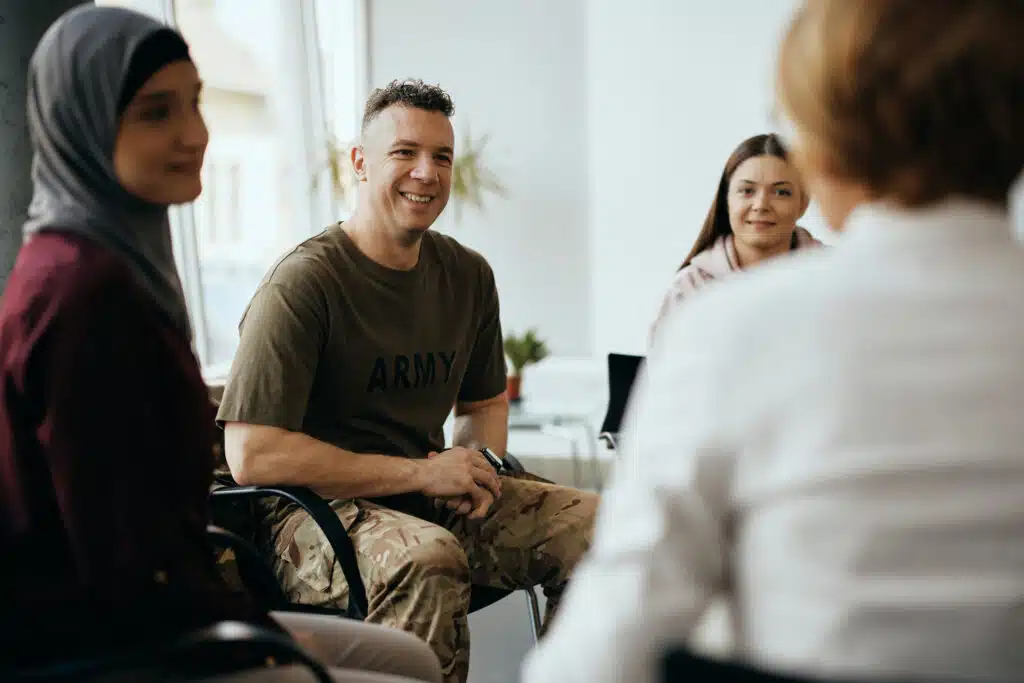At New Choices Treatment Center, we are committed to providing veteran-centered care. We aim to recognize and address the unique experiences and challenges faced by those who have served our country.
Many of our addiction medicine specialists are veterans themselves. This allows them to relate to and understand the concerns of our clients on a personal level.
We prioritize creating a safe, supportive, and empathetic environment. This environment acknowledges the impact of trauma on our veterans’ lives.
Our trauma-informed approach ensures every aspect of our program, from the physical space to staff interactions, is designed to promote a sense of safety and trust.
Our commitment to supporting veterans extends beyond our clinical offerings. We understand that the journey to recovery is a holistic one, encompassing:
To enhance access to care and support for veterans, we actively collaborate with:
These partnerships allow us to provide a comprehensive network of services and resources to our clients. This ensures that they have the tools and support they need to succeed in their recovery and reintegration into civilian life.
Some of the key services and resources we offer through our partnerships include:
We understand that stable, safe housing is essential for veterans in recovery. Our team works closely with local housing agencies and veteran-specific housing programs to help our clients secure affordable, supportive living arrangements that promote their ongoing recovery and independence.
Finding meaningful employment can be a significant challenge for veterans struggling with PTSD and addiction.
We collaborate with local employers, job training programs, and veteran employment services to help our clients develop the skills, confidence, and opportunities they need to succeed in the workforce.
This includes:
Many veterans face legal issues related to their substance use or mental health struggles.
We partner with veteran legal aid organizations and pro bono legal services to ensure that our clients have access to the legal guidance and representation they need to resolve outstanding issues and move forward with their lives.
Education can be a powerful tool for personal growth, self-discovery, and career advancement.
We work with local colleges, universities, and vocational training programs to help our veterans explore and pursue educational opportunities that align with their interests, skills, and goals.
Connecting with other veterans who have faced similar challenges can be incredibly powerful in the recovery process.
We collaborate with veteran peer support organizations, such as Alcoholics Anonymous and Narcotics Anonymous, to help our clients build a strong network of support and camaraderie that extends beyond their time in treatment.
At New Choices Treatment Center, we believe that by providing this comprehensive network of services and resources, we are not only supporting our veterans in their recovery from PTSD and addiction but also empowering them to build fulfilling, purposeful lives in their communities.
Our dedicated staff is committed to walking alongside each veteran, connecting them with the resources and support they need to thrive in their post-service journey.
At New Choices Treatment Center, we recognize the immense courage and resilience of the veterans we serve as they navigate the challenging path to recovery from PTSD and addiction.
We are committed to walking alongside them every step of the way, providing the specialized care, support, and resources they need to reclaim their lives and thrive in their post-service journey.
Together, we can honor your service and sacrifice by helping you build a brighter, healthier future.

